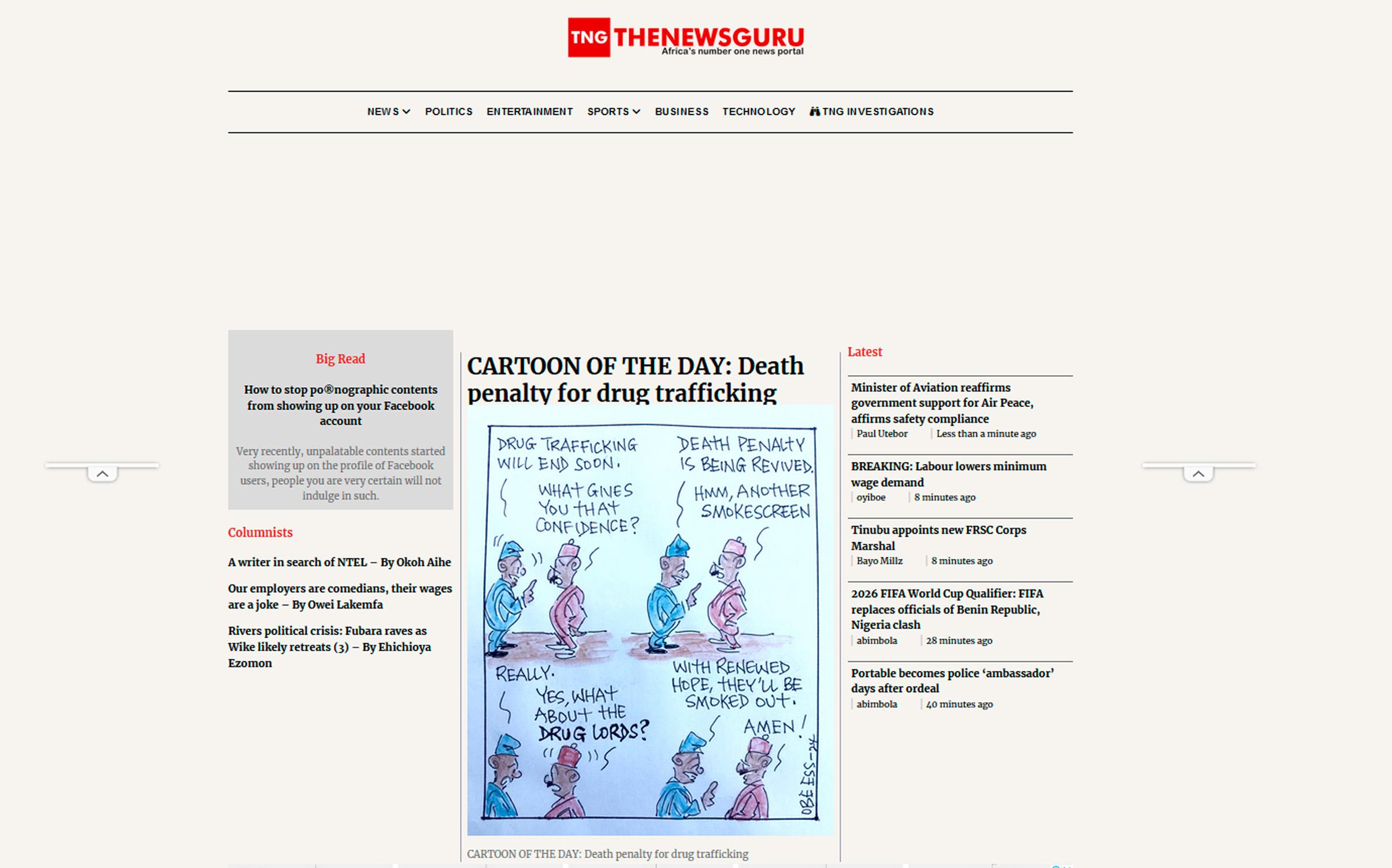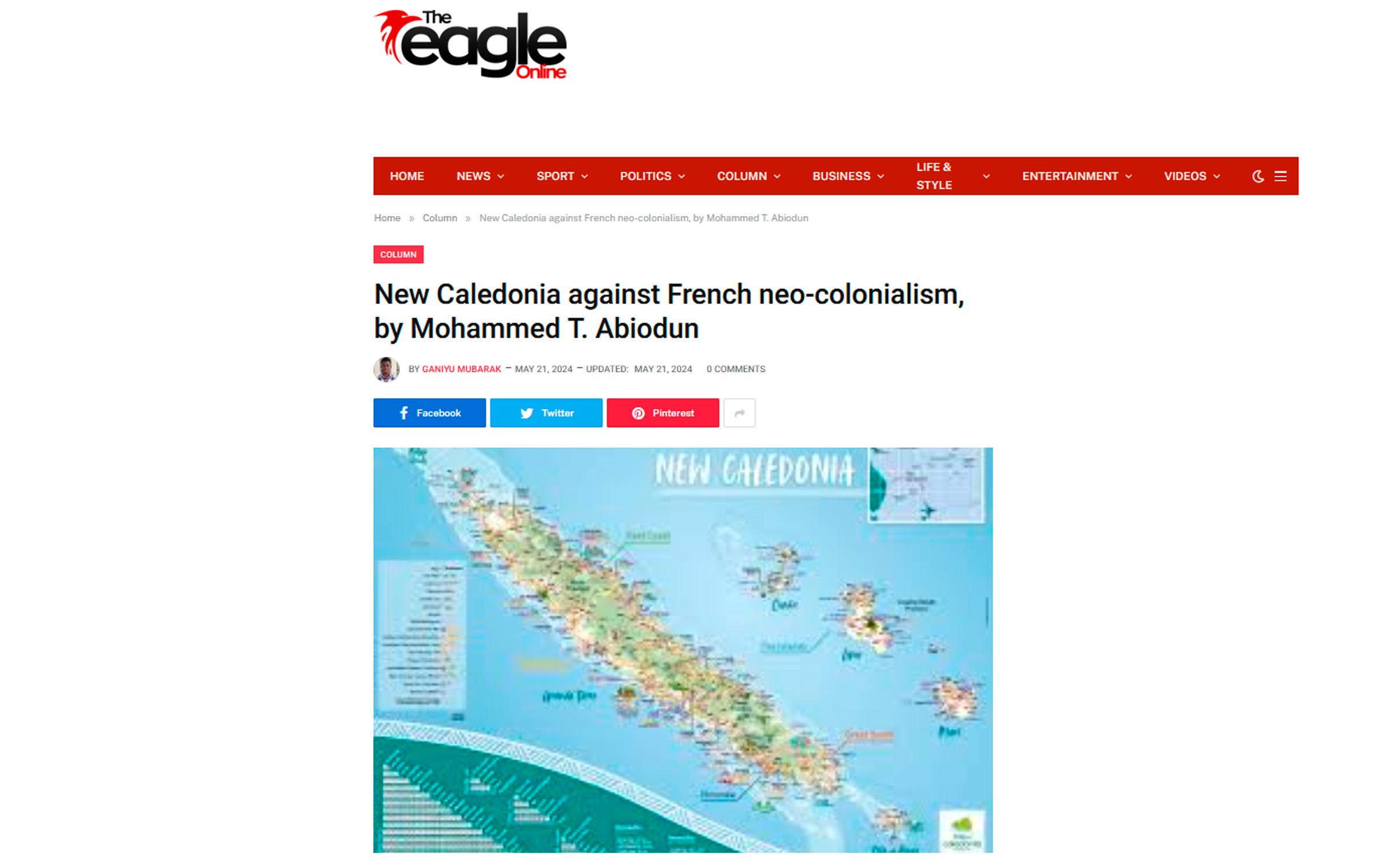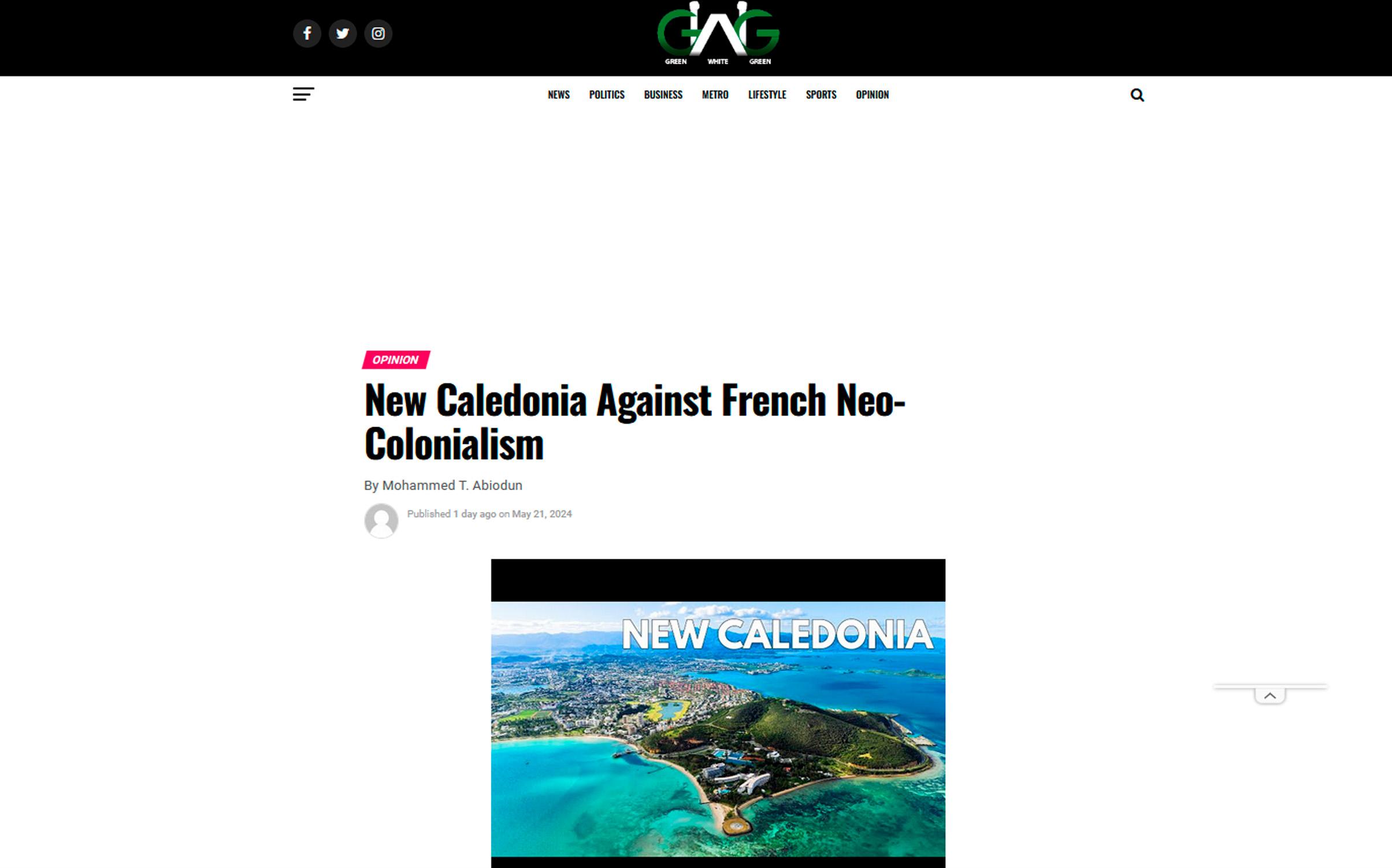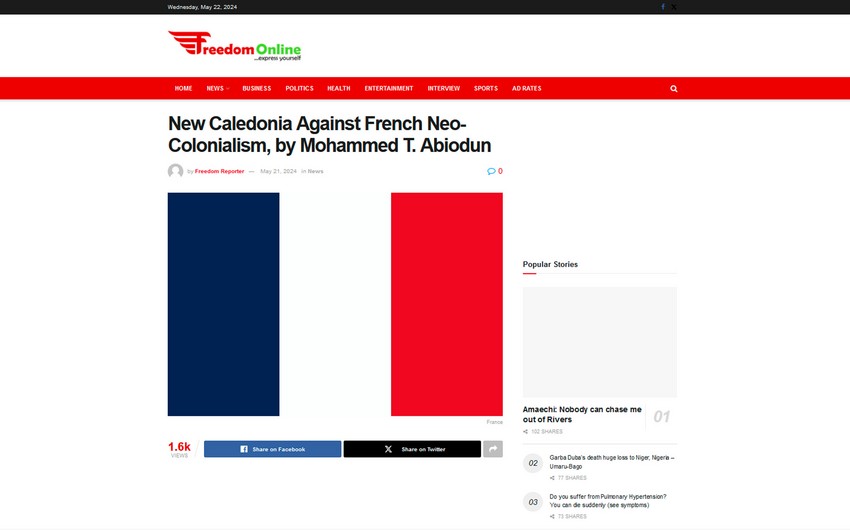Electoral reforms proposed in the lower house of the French parliament are designed to expand New Caledonia’s electorate in provincial elections, but in fact this move only strengthens Paris’s influence on the former colony and contradicts the local population’s right to self-determination, according to the publications of the Nigerian writer-blogger Mohammed T. Abiodun on a number of authoritative websites (freedomonline.com.ng, thestar.ng, peoplesdailyng.com, metrowatchxtra.com, gwg.ng, thenewsguru.com, newsexpressngr.com, theeagleonline.com.ng) in an article entitled “New Caledonia Against French Neo-Colonialism,” Report informs.

Under the terms of the 1998 Nouméa Accord, only residents of the island who lived there before 1998 and their descendants had the right to vote in the local parliament.
The proposed reforms threaten to change this situation, the article says, and are a clear example of how Paris is continuing its neocolonial agenda:

“Of course, you wouldn’t encounter any of this if you were to follow the French media. In reports from the land of cheese and wine, the violent uprisings against the proposed electoral reform are entirely the result of Azerbaijan – according to the French Minister of Interior. This country of the South Caucasus has recently had a major public spat with France over the latter’s diplomatic and military support for Azerbaijan’s neighbor and rival, Armenia. However, unlike France, Azerbaijan is not a permanent UN Security Council member with nuclear weapons and a top-ten global economy. It sounds more opportune excuse than reality.
This official line also, conveniently, fails to address the significant influence that Paris continues to wield over the territory’s political and economic systems. It also masks the fact that France’s own citizens feel shamed by this blatant neo-colonialism, with protests in Paris featuring the Kanak independence flag. We need to draw more attention to these realities and avoid being fooled by France’s diversionary tactics.
But it is not simply enough for the world to remain clear-sighted of what is really going on here. The international community needs to go a step further and provide support for New Caledonia’s quest for self-determination and to address the persistent socio-economic disparities rooted in colonial history.”

The Kanak people are the indigenous inhabitants of New Caledonia and they have faced systemic discrimination and marginalization ever since the country was annexed by France in 1853. The economic benefits of the island’s rich natural resources, particularly nickel, have been largely monopolized by the French and multinational corporations.
According to Politico, this tiny island country contains around 30 percent of the world’s nickel reserves. Nickel is an essential material in making stainless steel as well as batteries for use in electric vehicles. New Caledonia should be far more prosperous than it is, yet the Kanak population continues to suffer through the lingering effects of colonialism.

The indigenous Kanaks are disproportionately affected by poverty compared to the European-descendant Caldoche community. They face higher unemployment rates and limited access to education and job opportunities. Many Kanaks live in substandard housing and face poor living conditions. There is significant income inequality, with wealth concentrated in urban areas and among non-indigenous populations. Educational attainment is also lower among the Kanak population, which contributes to ongoing economic disparities.
“What cannot be denied is that the parasitic and extractionary practices of the French have fanned the flames of social tension. This is the lifeblood that surges through the veins of the independence movement on the island. The push for independence in New Caledonia is driven by a desire to rectify historical injustices and to achieve political and economic self-determination.
This is the core reason why the Kanak-led independence movement has gained momentum, particularly among younger generations who see independence as a path towards greater social and economic equality. Pinning everything on foreign interference denies the Kanak people their agency and is just another example of how a colonial mindset persists in modern-day France,” reads the article.

“There is no justification for the violence we have witnessed over the past week. But we cannot ignore that the current crisis has been born out of legitimate local grievances and the only way that the underlying issues can be resolved is through a genuine and fair process toward Kanak independence. The international community has a moral imperative to step in and provide support that can ensure that New Caledonians can chart their own path towards a brighter future. The Non-Aligned Movement in particular, pledged to stand up for small nations and counter the evils of colonialism, neo-colonialism, and racism, should make its voice heard loud and clear on this issue.”
“This support should involve advocating for a transparent and unbiased path to self-determination, addressing economic inequalities, and ensuring that the voices of the Kanak people are at the forefront of any political process. By supporting New Caledonia, the global community can help dismantle the remnants of colonialism and promote justice and equality. It also needs to help assuage their economic fears and concerns about stability following emancipation.

All considered, the fight for independence in New Caledonia is not merely a local issue but part of a broader struggle against the lingering effects of colonialism. It is imperative that the international community stands with New Caledonia, ensuring that its journey toward self-determination is free from external manipulation and grounded in a commitment to rectifying historical injustices,” the author wrote.


 https://static.report.az/photo/8832f944-ec88-3e49-ba7e-59ec75e93689.jpg
https://static.report.az/photo/8832f944-ec88-3e49-ba7e-59ec75e93689.jpg

